Top 20 Most Asked School Counselor Interview Questions with Answers
In order for kids and teenagers to achieve academically, socially, and emotionally, school counselors are crucial. If the hiring manager has invited you for a ... read more...school counselor interview, it means they believe you possess the qualifications to fill this important role. Here are top 20 Most Asked School Counselor Interview Questions with Answers that helps you prove you are the right person for the job.
-
It is required of school counselors to engage with students in a way that fosters trust and encourages communication. It's crucial for a school counselor to be able to foster an atmosphere where children feel comfortable and trusted to express themselves, as well as interact with them and form relationships. An interviewer will want to know that you possess the abilities required to establish relationships with kids and create a setting where they feel free to voice their worries and concerns. This is one of the Most Asked School Counselor Interview Questions with Answers.
You should be prepared to outline the methods you employ to establish rapport and trust with children when responding to this question. This might entail practices like providing a secure environment for kids to express themselves, active listening, utilizing open-ended questions to promote conversation, and being nonjudgmental. You might also want to discuss any prior work you've done with students, particularly how it's helped you hone your interpersonal skills.
Example:
Building trust and rapport with kids is, in my opinion, crucial for a fruitful counseling relationship. I work hard to foster an atmosphere in which students feel free to express themselves and are assured that their opinions will be appreciated. In order to accomplish this, I employ active listening strategies including repeating back what the student has said, posing open-ended inquiries, and offering constructive criticism. I also make it a point to give kids a place where they can open up and share their experiences without worrying about being judged or criticized. My prior work with at-risk children in a residential setting has honed my interpersonal relations abilities with students.
Image by fauxels via pexels.com 
Image by Vanessa Garcia via pexels.com -
Counselors at schools must be prepared to deal with pupils who might be reluctant to ask for assistance. It's crucial for recruiting managers to understand that you can develop trust with these students and provide a secure, judgment-free environment for them to discuss their problems. You can demonstrate that you are ready to take on the role of school counselor by demonstrating your ability to manage difficult situations.
The best method to respond is to give concrete examples of how you have developed rapport and trust with students. Explain the tactics you've employed, such as paying attention to what they have to say, demonstrating empathy, without passing judgment, encouraging them, and giving them access to resources that can be of assistance. You should also include any strategies you employ, such as employing humor or upholding confidentiality, to establish a safe environment for your kids.
Example:
I constantly work to establish a secure and encouraging environment because I recognize that it might be frightening for students to talk about their problems. I begin by paying close attention to the learner and showing empathy without passing judgment. By maintaining consistency in our meetings and providing encouragement when they make improvement, I also strive to foster trust. I utilize humor when appropriate since I've discovered that it can aid in removing obstacles. Also, I always stress privacy and let my kids know that anything we talk is only between us. They become more at ease speaking about challenging subjects as a result.
Image by ICSA via pexels.com 
Image by Pavel Danilyuk via pexels.com -
School counselors frequently work with students from various racial and cultural backgrounds. If you want to know if you're a good fit for the job, you should be able to show that you appreciate and understand different cultures and that you can develop strong relationships with kids from various backgrounds.
This can be seen as one of the Most Asked School Counselor Interview Questions with Answers. Consider the encounters you've had working with pupils from other cultures as you consider your response to this question. Speak about any particular measures you took to make sure all of your pupils felt welcome and appreciated in your classroom. You could also discuss your efforts to reduce cultural barriers amongst pupils from various backgrounds. Discuss any diversity and inclusion-related professional development courses or training that you have taken as well.
Example:
Working with pupils from various backgrounds is something I've done a lot of. As a school counselor, it was my duty to foster a friendly, accepting atmosphere where all students could feel at ease. I took the effort to do this by doing research and enrolling in professional development classes to learn about various cultures. To make sure that everyone had access to the same resources and support regardless of their background, I also worked closely with teachers and other staff members. In order for children to feel comfortable and supported at our school, I think it is important to develop meaningful relationships with them.
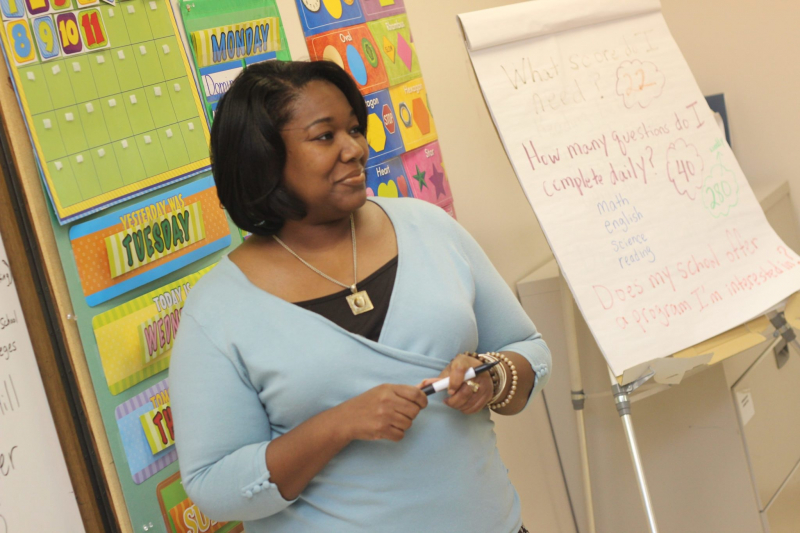
Image by nappy via pexels.com 
Image by Yan Krukau via pexels.com -
When working with students, school counselors must maintain a high standard of confidentiality. This demands that they be able to articulate how they deal with sensitive data and safeguard students' privacy. Given that this idea is crucial to the job and is something you should be familiar with, interviewers want to know that you comprehend it.
Begin by outlining the importance of confidentiality as a fundamental tenet of school counseling and the importance of building trust with children. You must keep all student information confidential as a school counselor, unless there is an urgent danger to the student or others. Emphasize that you will always respect your student's privacy and will only disclose their personal information if absolutely necessary.
Example:
A crucial component of school counseling is confidentiality. As a school counselor, I am aware of how crucial confidentiality is to fostering a sense of trust among kids. I will always respect my pupils' right to privacy and will only divulge personal information if it is absolutely required or if there is an immediate danger to their safety or the safety of others. Together with these measures, I also use encryption software for electronic records and a secured filing cabinet to keep all student information private and safe.
Image by Max Fischer via pexels.com 
Image by Pavel Danilyuk via pexels.com -
Counselors at schools are supposed to be aware of the best ways to assist students who are struggling with mental health difficulties. The most dependable and successful techniques for treating mental health disorders in children and adolescents are evidence-based practices, which can differ depending on the disease. This question is intended to gauge how well-versed you are in this area and to determine whether you are knowledgeable about current procedures.
Be ready to talk about the empirically supported techniques you are familiar with, such as Cognitive Behavioral Therapy (CBT), Dialectical Behavior Therapy (DBT), and Acceptance and Commitment Therapy (ACT). You should be able to describe how these techniques can be used to treat various mental health issues in kids and teenagers. Last but not least, be sure to underline your commitment to remaining current on the most recent research and the most effective strategies for treating mental health disorders. This question can be seen as one of the Most Asked School Counselor Interview Questions with Answers.
Example:
For the treatment of mental health disorders in children and adolescents, I am familiar with a variety of evidence-based methods. I've used Acceptance and Commitment Therapy (ACT), Cognitive Behavioral Therapy (CBT), and Dialectical Behavior Therapy (DBT) (ACT). These approaches can all be used to treat a variety of mental health conditions, including substance use disorder, trauma, anxiety, and depression. In order to care for my pupils the best way possible, I think it's critical to stay up to speed on the most recent research and best practices.

Image by Yan Krukau via pexels.com 
Image by Pavel Danilyuk via pexels.com -
Counselors at schools are in a unique position to spot and assist with mental health problems among pupils. This question is intended to test your comprehension of the procedure for determining the presence of suicidal ideation, which is a crucial duty of a counselor. Also, it allows the interviewer to hear your reasoning and get a sense of how you would respond to this kind of circumstance.
Introduce yourself by outlining the procedures you would use to evaluate a student's risk of suicide. You should discuss how you would pose inquiries in a non-judgmental, encouraging, direct, and honest manner. Don't forget to explain any guidelines or processes your school has established for evaluating students for suicide ideation. Provide instances of how you have successfully applied these techniques in the past as well. Finally, describe the services or assistance you may provide to a student who is contemplating suicide.
Example:
I always make sure to approach the topic with kindness and understanding when evaluating a student for suicidal ideation. Usually, I begin by asking open-ended questions about how they are feeling and any potential life events that may be upsetting them. A standardized risk assessment questionnaire created by our school district is another resource I use to look for any potential suicide red flags. If it is found that a student is at risk, I will direct them to the proper mental health providers and offer support as required. I was able to successfully link students with the tools and support networks they needed to ensure their safety and well-being in my former role as a school counselor.
Image by Pavel Danilyuk via pexels.com 
Image by Yan Krukau via pexels.com -
It is expected of school counselors to support kids in maintaining their mental and emotional well-being. With this question, the interviewer can determine your strategies to support children dealing with stress and anxiety and whether you have a firm grasp of the tools and resources they have access to.
Discussing the strategies you've employed in the past and the reasons they were effective is the best method to respond to this question. You can also talk about any tools or initiatives you've put in place, such peer support groups, meditation classes, and other activities, to assist students in managing their stress and anxiety. Be careful to highlight how your strategy is adapted to the unique demands of each learner.
Example:
To aid pupils in controlling their stress and anxiety, I employ a range of strategies. I believe it's critical to customize my approach for each student, so I begin by getting to know them and figuring out what's really bothering them. We can then collaborate on techniques like cognitive-behavioral therapy, relaxation techniques, or problem-solving techniques from there. I also offer resources and assistance to students who might require it, such as referrals to peer groups or mental health professionals.

Image by Yan Krukau via pexels.com 
Image by Katerina Holmes via pexels.com -
Students of all ages can receive assistance from school counselors with a range of problems, including mental health. It can be challenging and stressful to talk to a parent or guardian about their child's mental health, so it's crucial that a school counselor be able to manage the issue with kindness, empathy, and respect. The interviewer is interested in learning if you can approach these interactions with empathy and compassion and that you have the ability to offer advise.
It's critical to show that you appreciate the value of a fruitful discussion regarding a child's mental health with the parent or guardian. Describe how you would handle these discussions while still offering useful advise in a sensitive and understanding way. Discuss your past dealings with similar circumstances while highlighting your empathy and patience. Include any techniques you employ while speaking with your parents or guardians, like active listening and open-ended questioning.
Example:
I like to begin tough discussions with parents or guardians concerning their child's mental health by reiterating that my aim is to assist their child in any way I can. I also make an effort to be as upfront and truthful as I can be while yet respecting the parent's sentiments and preferences. I've discovered that in order to foster an atmosphere where parents feel at ease speaking with me, I need to be direct and honest while also being patient and understanding. In order to promote conversation and make sure the parent or guardian is heard and understood, I also utilize active listening and open-ended questions. I'm sure I can manage these conversations with sensitivity and respect based on my experience.
Image by Basil Otshudi via pexels.com 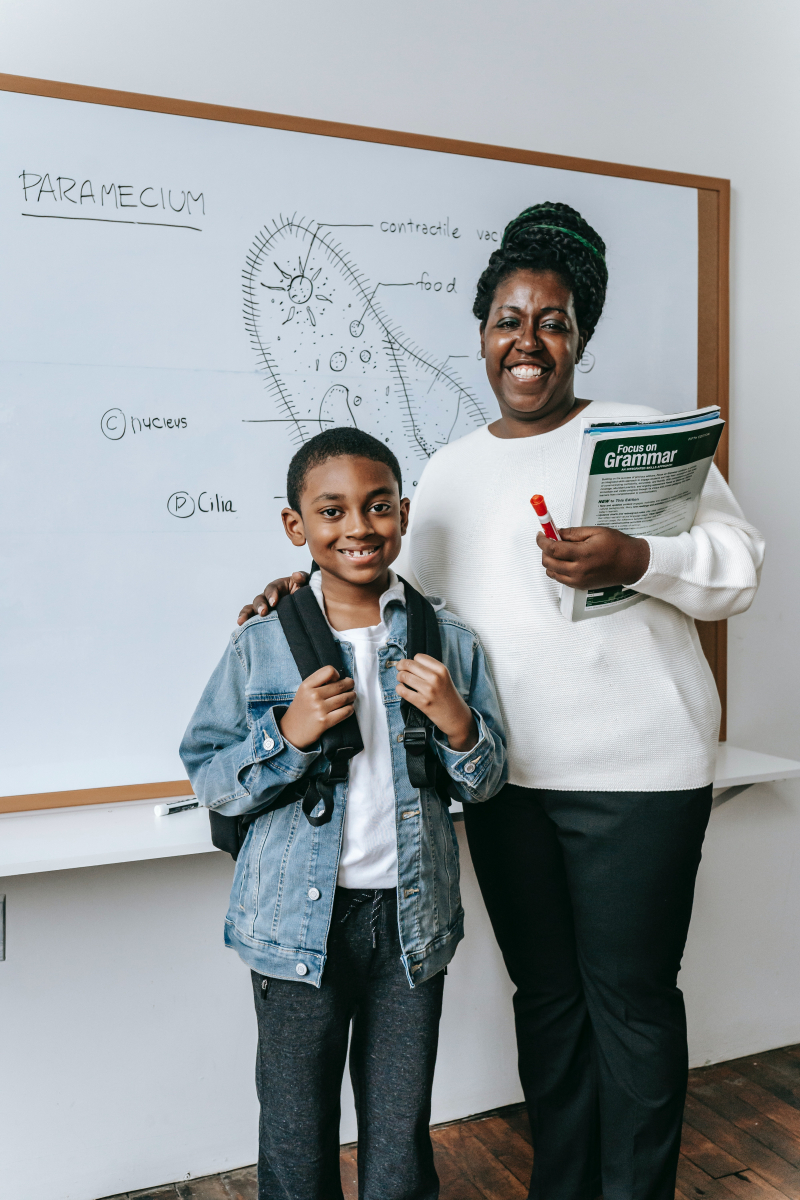
Image by Katerina Holmes via pexels.com -
School counselors are essential in assisting children in navigating crises and other trying circumstances. School counselors must be ready to act swiftly and decisively in any situation whether a student is experiencing a mental health crisis, bullying, or a loss in the family. Interviewers want to know that you can deal with these circumstances politely and compassionately.
In your response to this query, please give an example of a time when you had to step in to help a student in need. Describe the actions you took to evaluate the situation and your response. Be careful to emphasize how important it is for you to guide kids through these challenging circumstances while also keeping an eye out for their safety and privacy. Finally, talk about how your intervention worked and how it helped the student.
Example:
I recall a situation where a distressed student approached me. She was having a hard time coping with her grief after losing her grandmother recently. I listened to her and tried to comprehend what she was going through. I then gave her access to tools that would enable her to process her grief in a healthy way. I also set her up with additional support resources at the school, including the student aid program and the school psychologist. She was eventually able to move on and finish her studies because I was able to provide her the support she needed to get through this trying moment.
Image by Gustavo Fring via pexels.com 
Image by Gustavo Fring via pexels.com -
School counselors frequently have to deal with classroom disruption. This is a challenging job because it calls for a lot of tolerance, comprehension, and problem-solving abilities. The purpose of this question is to gauge both your capacity for remaining composed and professional in the face of challenging circumstances and your aptitude for coming up with original answers to challenging issues.
It's crucial to highlight your capacity for composure under pressure in your response to this topic. Discuss how you would first make an effort to defuse the situation by having a non-confrontational conversation with the student and attempting to understand why they act this way. Tell them that after that, you will collaborate with them to create a strategy to ensure that their disruptive conduct does not persist. Finally, talk about any approaches or strategies you have employed in the past to assist pupils in effectively controlling their emotions and conduct. It is one of the Most Asked School Counselor Interview Questions with Answers that you should know.
Example:
My top priority while dealing with disruptive behavior in the classroom is to remain composed and professional. By having a non-confrontational conversation with the student and attempting to understand why they are acting in this way, I will try to defuse the issue. After that, I'll work with them to create a strategy to stop the disruptive conduct. In the past, I've seen that methods like active listening, rewarding good conduct, and setting clear expectations can be useful in controlling challenging behavior. I've also worked with pupils to adopt behavior management strategies to keep them on task and succeed in the classroom.
Image by Andrea Piacquadio via pexels.com 
Image by Yan Krukau via pexels.com -
The role of school counselors is to assist kids in navigating the social, psychological, and emotional facets of school. Programs for social-emotional learning should be developed and put into place by an expert school counselor in order to meet the needs of the kids. The purpose of this question is to help the interviewer determine how much experience you have in this field and whether you are a good fit for the position.
The easiest approach to respond to this question is to give particular instances of past programs that you have run. If you don't have any direct experience, describe how your present employment or volunteer work has equipped you with the knowledge and abilities needed to design and implement social-emotional learning initiatives. Don't forget to highlight your comprehension of student demands as well as your capacity to identify those wants and develop a curriculum that satisfies them.
Example:
I have a lot of expertise assisting students in their social and emotional learning. I created and implemented a program in my current role as a school counselor that was centered on educating students on how to successfully control their emotions in order to improve academic achievement. I also collaborated with the staff to develop a culture of emotional safety and support at the school. In my prior position, I volunteered for an after-school program that gave students access to social-emotional development activities. I am certain that I can create and put into place effective social-emotional learning programs in your school thanks to my experience and understanding of student requirements.
Image by Antoni Shkraba via pexels.com 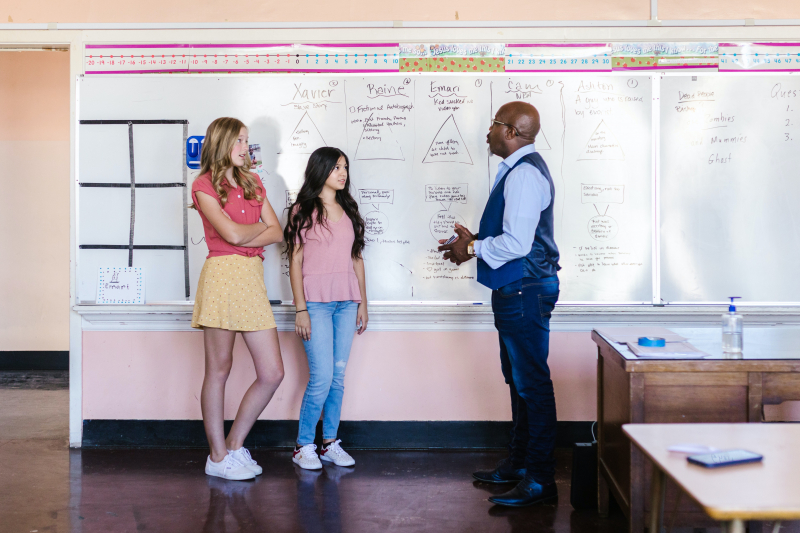
Image by RODNAE Productions via pexels.com -
Counselors at the school are in charge of assisting pupils with a range of problems, including social and academic ones. In order to be effective in this position, it's critical to be able to recognize when a student needs additional support and to be able to give it to them without making them feel coerced. The interviewer will use this question to determine how well you can handle this kind of tricky issue. It is one of the Most Asked School Counselor Interview Questions with Answers that you should know.
The capacity to establish trust with the kid and your comprehension of what it's like to be in their situation should both be emphasized. Inform them that your strategy would be to first validate and listen to their sentiments, after which you would subtly propose any resources or services that would be of assistance. Reiterate that participation in these is optional and should only be undertaken by those who feel comfortable doing so. Finally, let them know that you are always there for conversation and assistance.
Example:
I recognize that it might be challenging for a kid to ask for assistance when they are having academic difficulties. I always begin by paying attention to the student's feelings and validating them. I'll also let them know about the various tools and services that are on hand to support them, like tutoring and counseling. I stress that they are merely optional options for them to acquire the assistance they require if they feel comfortable doing so. I also make sure to let them know I'm always accessible for support and conversation.
Image by Karolina Grabowska via pexels.com 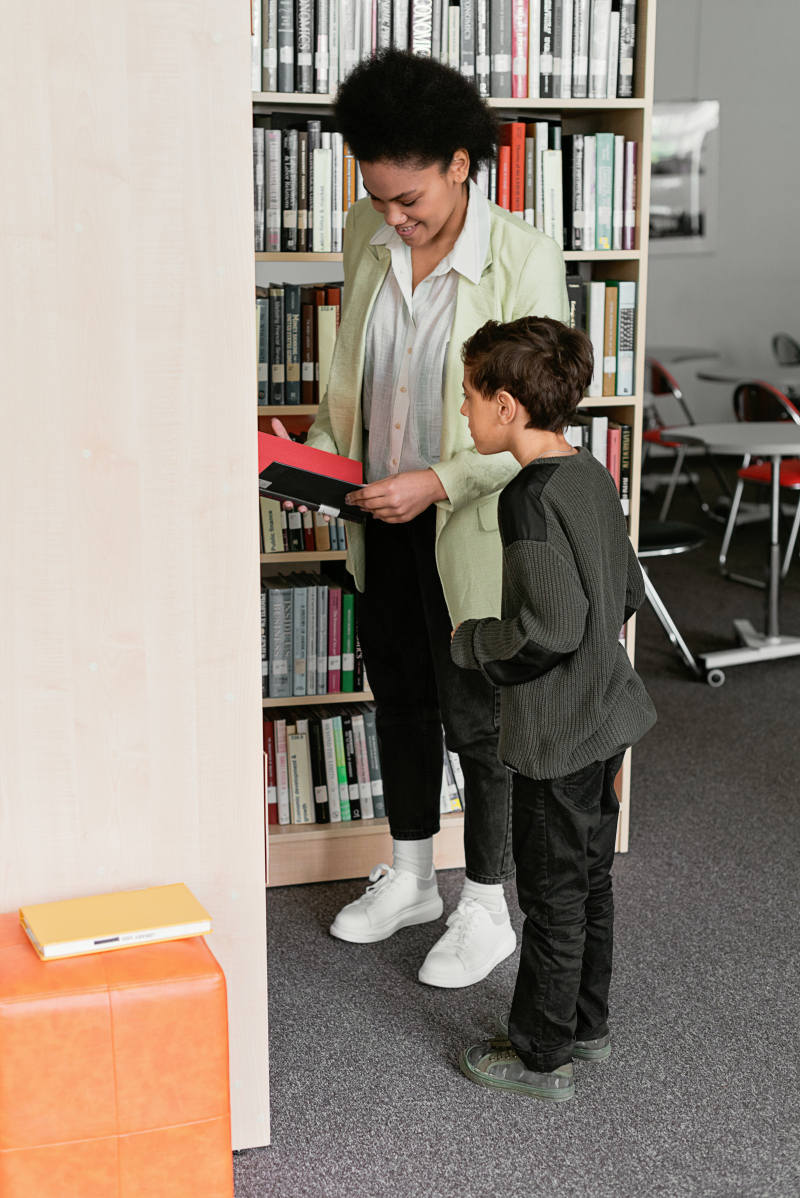
Image by Mikhail Nilov via pexels.com -
The establishment and upkeep of a secure and encouraging environment for pupils falls under the purview of school counselors. This entails being able to spot instances of harassment or bullying and acting appropriately to put an end to the situation. The interviewer uses this question to test your abilities to identify prospective problems and deal with them.
Start by outlining the techniques you have previously employed to spot instances of bullying or harassment. This can entail talking with students directly, keeping an eye on social media, running polls or focus groups, or working with teachers and other staff members.
You should also talk about any preventative efforts you take to stop bullying or harassment before it starts. Implementing an anti-bullying policy, educating professors and staff, or developing events and initiatives to encourage inclusion and acceptance among students are a few examples. Last but not least, be sure to detail how your strategy is suited to the unique requirements of the school community.
Example:
I have a few techniques I employ to spot instances of harassment or bullying. In order for kids to feel comfortable approaching me with any problems, I first make it a point to speak to them directly as often as I can and develop relationships with them. I also keep an eye on social media platforms for any indications of prospective issues. I often hold focus groups and surveys to better understand the culture of the institution. Last but not least, I work closely with instructors and other staff members who could offer advice on any problems.
Image by fauxels via pexels.com 
Image by Max Fischer bia pexels.com -
It is expected of school counselors to be able to assist children with a range of problems, both academic and personal. This question is meant to gauge how well you can establish trust with pupils and encourage them to express their emotions. It demonstrates that you are aware of the value of attentive listening in a therapy situation.
In your response, you must show that you are aware of the significance of developing trust with a pupil. Describe how you would establish a setting where students feel at ease discussing their feelings and emotions. Discuss ways to establish rapport and get individuals to open up, such as active listening, open-ended inquiries, and nonjudgmental statements. Finally, stress your ability to be understanding and patient as the student resolves their concerns.
Example:
I always begin by providing a safe and trusting environment when working with a student who is reluctant to discuss their feelings or emotions. I make sure the student understands that I'm not judging them by using nonjudgmental words and active listening tactics to demonstrate that I'm truly listening to what they have to say. In order to get to the bottom of the student's problems and to encourage them to communicate more, I also offer open-ended questions. Above all, I try to be empathetic and patient as the learner processes their emotions. I think I can assist the kid open up and handle their problems more effectively if I take the time to establish trust and provide a safe environment.
Image by Max Fischer bia pexels.com 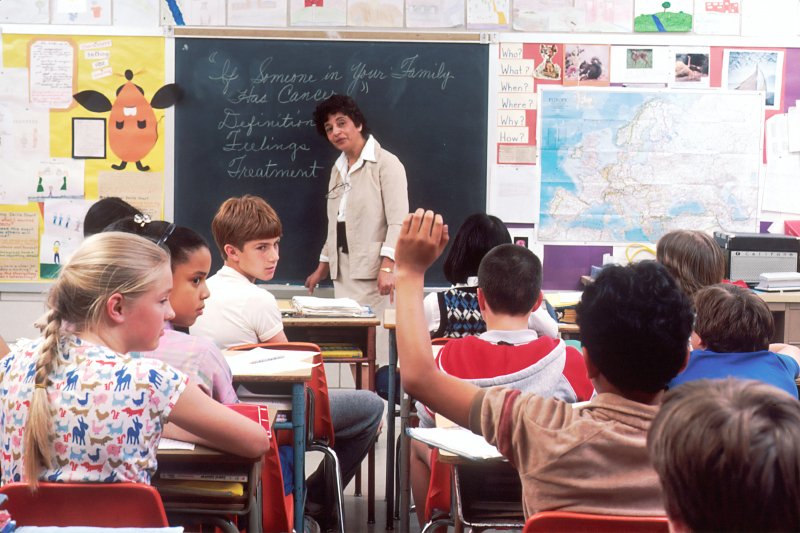
Image by National Cancer Institute via unsplash.com -
All students, regardless of race, gender, sexual orientation, or any other aspect, are expected to learn in a secure atmosphere that is provided by school counselors. This question is a great way to gauge your knowledge and experience in the field because schools want to make sure that any future hires realize how important it is to make everyone feel supported and accepted.
Start off by describing your prior experience working with LGBTQ+ students. If you don't have any firsthand experience, describe the actions you would take to foster an environment that is welcoming and encouraging for them. This can entail establishing a comfortable environment for conversation, paying attention to their worries, and offering support or referrals as required. Moreover, describe how you can utilize data-driven techniques to recognize possible problems and provide solutions for them. In order to ensure that everyone feels heard and valued, talk about the significance of fostering an open discussion between school personnel and LGBTQ+ kids.
Example:
Being a school counselor, I currently have a lot of experience working with LGBTQ+ children. I foster a welcoming and helpful environment by attentively listening to their worries, offering resources or referrals as necessary, and establishing a secure space for candid communication. In order to anticipate possible problems and create solutions, I also employ data-driven approaches. In the end, I think it's critical to promote an open communication between LGBTQ+ kids and school employees so that everyone feels heard and valued.
Image by 祝 鹤槐 via pexels.com 
Image by Yan Krukau via pexels.com -
Counselors at schools have a specific duty to their charges. Teachers must be able to provide a secure environment where kids may express their thoughts and feelings, and they must be alert enough to know when to intervene if a student is in danger. This inquiry is intended to test a candidate's aptitude for identifying when a student requires assistance and for knowing how to respond in a dignified and responsible way.
The student's safety and wellbeing should be made clear from the outset as being your first priority. Tell them that you will do everything possible to secure their immediate safety, including, if necessary, contacting child protective services or a local authority. The fact that you are willing to offer the student and their family services like therapy referrals, support groups, or legal assistance should also be made clear. Finally, stress that in order to safeguard the student, you would keep all information private and only divulge it to those who truly need to know.
Example:
My top goal would be to guarantee the student's immediate safety if they provided information regarding abuse or neglect at home. I would take precautions to keep the pupil safe and, if necessary, contact child protective services or a local authority. In addition, I would provide the student's family resources like counseling referrals, support networks, or legal help. I respect the value of secrecy, so in order to protect the student, I would only disclose the information to those who actually need to know.
Image by Thirdman via pexels.com 
Image by Tima Miroshnichenko via pexels.com -
School counselors must be able to gauge the impact of their work in order to assist children in moving forward in both their academic and social life. This question is meant to test your understanding of various evaluation techniques and see whether you have a strategy for monitoring your progress. Also, it demonstrates the interviewer's desire to speak with someone who is devoted to assisting children in long-term changes and gains.
You should be prepared to talk about your experience using several evaluation techniques. Explain the different types of assessment you have used in the past, such as questionnaires, interviews, and surveys. You can also discuss any data-driven strategies you've used, such as monitoring attendance or test performance. Lastly, be sure to describe how you use this information to modify your strategy and better serve your students.
Example:
In order to determine how well my counseling sessions are working, I consider both qualitative and quantitative data. I gather information using questionnaires, interviews, and surveys, then I evaluate it to gain a broad sense of how my pupils are doing. I also keep track of students' attendance and exam results to look for any trends or correlations that might be helpful. Ultimately, I make changes to my strategy based on the facts in order to better serve the needs of my pupils. I constantly work to make sure that my counseling sessions are making a difference in the lives of my pupils.
Image by Artem Podrez via pexels.com 
Image by RODNAE Productions via pexels.com -
School counselors are in charge of assisting kids in moving forward in both their academic and social life, and they must be able to gauge the success of their efforts. This inquiry is meant to test your understanding of various evaluation strategies and see whether you have a system in place for keeping tabs on your progress. Also, it can be seen clearly that the interviewer is looking for a candidate who is dedicated to assisting kids in long-term changes and development.
Be ready to share your experiences using various evaluation techniques. Discuss the different methods of evaluations you have employed in the past, including questionnaires, interviews, and surveys. You can also speak about any data-driven strategies you've used, including keeping track of your attendance or test results. Last but not least, be sure to describe how you use this data to modify your strategy and better serve the requirements of your pupils.
Example:
In order to determine how well my counseling sessions are working, I consider both qualitative and quantitative data. I gather information using questionnaires, interviews, and surveys, then I evaluate it to gain a broad sense of how my pupils are doing. I also keep track of students' attendance and exam results to look for any trends or correlations that might be helpful. Ultimately, I make changes to my strategy based on the facts in order to better serve the needs of my pupils. I constantly work to make sure that my counseling sessions are making a difference in the lives of my pupils.
Image by fauxels via pexels.com 
Image by Christina Morillo via pexels.com -
The most recent theories, research, and methods for working with students must be kept in mind by school counselors. The interviewer can determine how committed you are to your professional development and how eager you are to learn new things by asking you this question. Also, it provides you with the chance to discuss any continuing education activities you've engaged in, including visiting conferences or taking classes.
The chance to show that you are dedicated to your professional progress is excellent. Include any continuing education classes, seminars, or workshops you've attended, as well as any books and articles you've read that are connected to school counseling. You can also list any other online tools you use to keep up with news, including blogs, podcasts, or newsletters. Finally, make sure to include any methods you use to keep informed, such as scheduling time each week to read pertinent content.
Example:
I'm dedicated to keeping up with the most recent advancements in the profession of school counseling. I participate in a number of professional associations, including the American School Counselor Association, and I frequently go to their conferences and workshops. In order to stay current, I also read pertinent books and articles, subscribe to a number of newsletters, and listen to podcasts. In order to stay up to date on the most recent studies and tactics, I also set aside time each week to study and explore new subjects.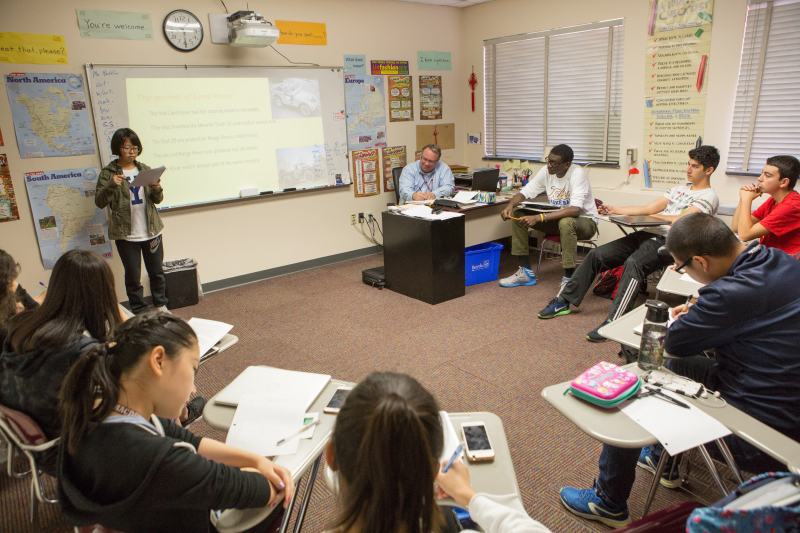
Image by THE MACDUFFIE SCHOOL via pexels.com 
Image by Tima Miroshnichenko via pexel.com -
The role of school counselors is to guide kids through the difficulties of academic, social, and emotional life. To provide the finest support for their pupils, they must be able to collaborate with other experts and comprehend their responsibilities. The purpose of this question is to see whether you comprehend the value of teamwork and how you collaborate with other experts to meet the needs of the student.
Start by outlining the circumstances and the reasons why cooperation was required. Describe how you determined which experts, such as educators, decision-makers, or other counselors, needed to be involved. Describe the actions you took to make sure everyone was on the same page and working toward the same objective. Lastly, describe how your partnership worked out and how it benefited the student in question.
Example:
I recently had the opportunity to work with a student who was having both academic and home life difficulties. I worked along with their teachers, the school's principal, and the school psychologist to develop a strategy that would support them in the best way possible. We talked about the student's requirements and the resources at our disposal, and we all came to an understanding on a course of action. After that, we collaborated to carry out the plan, which involved giving the kid extra guidance and support in the classroom, setting them up with a mentor, and assisting them in finding resources outside of the classroom. The student's grades increased and they were able to receive the additional assistance they required to be successful.
Image by RODNAE Productions via pexels.com 
Image by RODNAE Productions via pexels.com









































